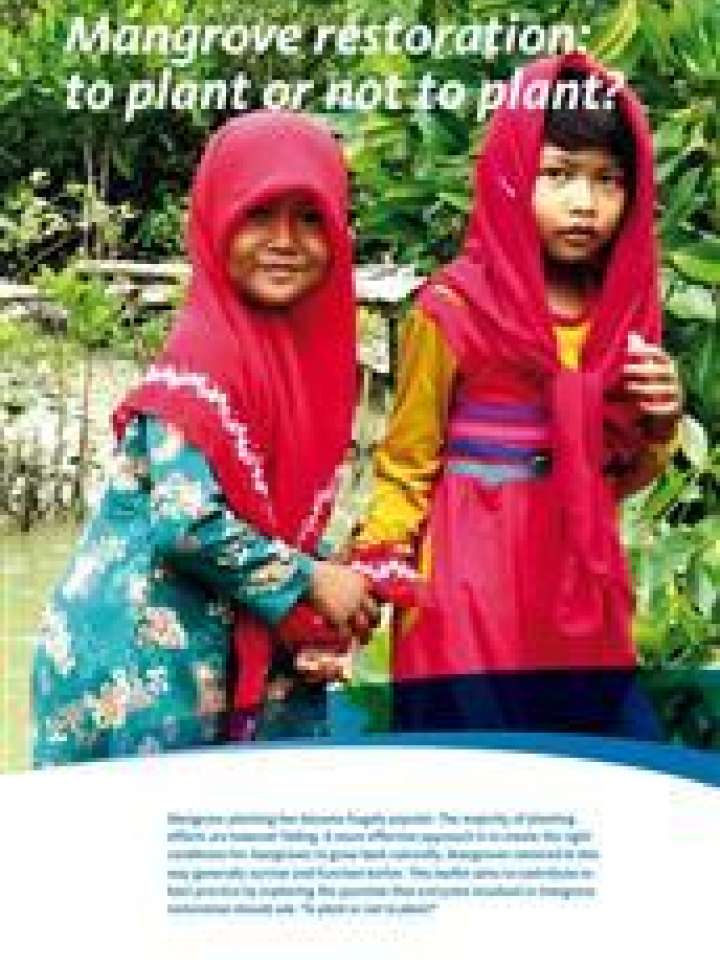Mangrove restoration: to plant or not to plant?
This brochure discusses why ecologically restored mangroves survive and function better, and explores recurring factors for failure, principles for successful mangrove restoration, and guidance on when and where not to plant. Mangrove planting has become hugely popular in the context of disaster risk reduction, climate change adaptation and mitigation amongst others. Unfortunately, the majority of planting efforts are failing. This brochure aims to contribute to an ongoing debate in the mangrove community. The document also features a list of literature where more information on natural mangrove rehabilitation can be found.
The document includes the following key messages:
- The world needs mangroves, but in many parts of the world they have been lost or degraded, along with their valuable services like coastal protection or fisheries enhancement. Restoration is necessary in many places.
- Mangrove planting is hugely popular, but the majority of planting efforts fail to restore functional mangrove forests and we can learn from these experiences.
- Successful restoration results in the establishment of a sizeable, diverse, functional and self-sustaining mangrove forest that offers benefits for nature and people.
- When the enabling biophysical and socioeconomic conditions are put back in place applying Ecological Mangrove Restoration principles, nature will do the rest. When that happens, species to site matching is optimal, resulting in better survival, faster growth and a more diverse and resilient mangrove forest.
- In some cases, planting can assist or enrich the natural regeneration process. However, planting in non-mangrove habitat and areas showing natural mangrove recruitment needs to be avoided.
The document concludes that while planting can sometimes be useful for assisting or enriching the natural regeneration process, a more effective approach is to create the right conditions for mangroves to grow back naturally, as mangroves restored in this way generally survive and function better.
Explore further
